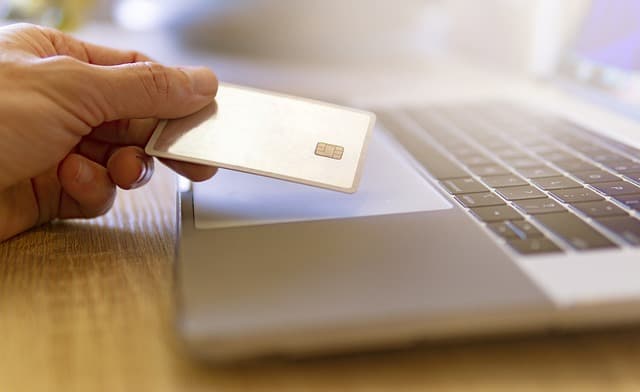The digital age has opened up many opportunities for convenient online shopping. However, as online shopping grows in popularity, so do the threats to our personal data. Scammers, phishing, website vulnerabilities – all of these can jeopardize your financial security. It’s important not only to enjoy convenience, but also to take steps to protect your data. In this article, we will review the basic rules of safe online shopping that will help you minimize risks and protect your personal information.
Choose trustworthy shopping sites
Before you enter your personal information or make a payment, it is important to make sure that you are really on a safe and secure internet site. Otherwise, you run the risk of being victimized by scammers who may steal or use your information. To avoid unpleasant consequences, you should perform several checks before buying. Let’s take a look at the basic steps that will help you make sure your online store is safe and ensure your data is protected.
- Check the URL: The website address should start with https://, where the “s” at the end means that the connection is secured using an SSL certificate. This ensures that all data transmitted, including your personal information and payment details, is encrypted and protected from unauthorized access.
- Read user reviews: One of the best ways to gauge the reliability of a store is to read a lot of reviews from real customers. Use third-party platforms to find reviews, such as Trustpilot or Google Reviews. High rankings and positive reviews speak volumes about a site’s reputation, while negative comments can signal possible quality or security issues. For those who are interested in how to choose safe sites for gambling, especially at bitcoin casinos, you can check out HzO.me, which is a reliable source of information about all the bonuses and promotions offered at such casinos.
- Look for security marks: Large and trusted online retailers often use security marks such as logos of well-known security vendors such as Norton, McAfee or VeriSign. These symbols indicate that the site is regularly checked for threats and adheres to high security standards, which adds extra confidence in your protection.
Secure Payment Methods: How to Secure Your Financial Transactions
To ensure the safety of your money when shopping online, you should choose only trusted and secure payment methods.
- Credit and debit cards: Cards offer a degree of protection. For example, many banks offer fraud protection policies that allow you to dispute a transaction in the event of improper charges. Cards also often support technologies such as 3D Secure, providing additional security when shopping online.
- E-wallets: Payment systems such as PayPal provide additional protection by hiding your bank details from the seller. This significantly reduces the risk of fraud because the seller does not have access to your personal information. In addition, such services often offer a refund option in case of problems with the order.
- Cryptocurrencies: Some shoppers choose cryptocurrency, such as Bitcoin, for online purchases because it can provide additional anonymity and security. Cryptocurrency payments are protected by cryptography, making them difficult to intercept or counterfeit. However, it’s important to remember that cryptocurrency transactions cannot always be reversed, so it’s important to make sure the merchant is trustworthy before paying.
Protect your personal data
To protect your personal information as you plan your online shopping, you should follow a few basic rules:
- Encryption: Make sure that the site uses a secure connection. This can be verified by making sure your browser address bar says https:// and not http://. The “s” in “https” indicates the presence of an SSL certificate, which encrypts your data to protect it from interception.
- Data Minimization: Only pass on the data that is actually necessary to complete the purchase. For example, if a site requires you to enter unnecessary information such as your passport number or social security details, you may be wary. The less information you share, the safer your data is.
Keep your devices up to date and use antivirus software
To protect yourself from viruses and cyberattacks, you should regularly update the software on all devices from which you access the Internet and install a reliable antivirus program. This will protect you from new threats and help prevent malware infections.
- Antivirus software: Install antivirus software to help detect and block viruses, Trojans, spyware, and other malicious applications. Modern antiviruses also offer real-time protection features, detecting suspicious activity on your device. Some antivirus programs can automatically block dangerous websites and emails with attachments, greatly reducing the risk of infection.
- System updates: Regular updates to the operating system and browsers play a key role in security. Developers often release updates that address vulnerabilities that can be exploited by attackers. This applies not only to the system itself, but also to various applications. Make sure that your devices are set to update automatically so that you always have up-to-date security patches.

Beware of phishing and scams
Phishing is one of the most common methods by which criminals try to gain access to your personal information, such as passwords and bank details, using deception.
- Check links: Never click on suspicious links, even if they come from someone you know. Scammers can spoof addresses or disguise them as legitimate links. To make sure a link is safe, hover your mouse over it (don’t click) and check the URL at the bottom of the screen. If the link looks suspicious, it’s best not to click on it.
- Do not enter data on suspicious sites: If the site looks incongruous, suspicious or its URL does not match the company’s official address, refrain from entering your data. Before entering personal information or card details, always check that the site uses a secure connection (https://) and that its appearance matches the official company website. When in doubt, it is better to consult official sources and contact support.
Following these recommendations will help you avoid phishing attacks and scams by keeping your personal data safe.




